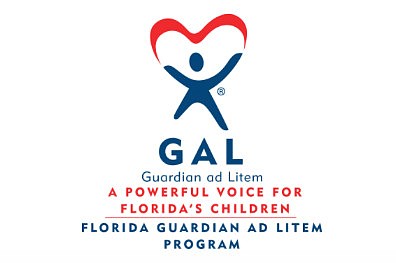- April 23, 2024
-
-
Loading

Loading

Flagler County’s Guardian ad Litem program is struggling to keep up with increasing numbers of abused and neglected children who need volunteer advocates.
Between Jan. 1 and April 1 of last year, the program had 12 new cases. In the same time frame this year, it’s had 27, bringing the total number of children assigned to the program to 126, said Program Supervisor Vickie Mathis.
There are 41 case-carrying Flagler volunteers, who investigate the living circumstances of children removed from their homes by the court, and make recommendations. The program also needs volunteers in Volusia County, which has 715 children assigned to the program, but just 230 case-carrying volunteers, said Child Advocate recruiter Judy Evers.
“If they continue to increase at that rate, then we need a lot more volunteers to advocate for those kids,” Evers said. “What we’re doing is we’re giving the volunteers that we already have more cases. But we can’t keep adding cases to existing volunteers, or we’re going to burn them out, and also their advocacy for them could suffer.”
Palm Coast resident Charles Swinburn is one of those volunteers. A retired railroad executive and attorney, Swinburn and his wife, Carol, are working as a team on three cases, including one “courtesy case” for a child who lives in Flagler but whose court case is in another county.
That’s about as many as a guardian should handle, Mathis said. “I would like it to go down to one or two cases. I think we would keep guardians longer if they don’t feel pressured that they need to take cases.”
Each case, which may involve more than one child, takes about nine to 12 hours of work per month.
When Swinburn started volunteering with the program after moving to Flagler County eight years ago, things were even tougher. At one point, he said, he was carrying seven cases.
Cases are supposed to be wrapped up within one year, he said, but generally aren’t . They’re too complex.
“It’s never easy to really understand what’s going on in a family situation, where events are happening on a daily basis,” he said. “And people, of course, have different motivations. Parents want the kids back, and they’re not necessarily going to be as forthcoming about their problems as they might otherwise be.”
Often parents have drug problems, he said. Painkiller addictions are particularly common.
So, while parents are given a chance to get their lives in order, Guardian ad Litem volunteers investigate, speaking to children’s other family members, their teachers and medical professionals to determine whether they’ll recommend that a child be returned to their parent or parents, removed from their care permanently, or removed from their care temporarily.
It’s a heavy responsibility: The wrong decision could endanger the child’s life.
“It isn’t easy. You really have to think it through,” Swinburn said. But the decision isn’t made by the guardian alone: The program’s supervisor and attorney work with the guardian to craft a recommendation, and that recommendation is presented to the court alongside the state’s recommendation and the recommendation of the parents’ attorneys.
The outcome can influence more than a decade of a child’s life. The 21 children Swinburn has worked with have been young, generally 8 or 9 years old.
It’s hard not to get attached to them, he said.
“It’s very hard to not get emotionally caught up in the cases,” he said. “Carol and I did a lot of talking about it in the beginning, and decided we were going to actively work not to get caught up in the cases. Some of these kids are so sweet and adorable… and you worry.”
But Swinburn has never seen an outcome he thought would endanger a child. And sometimes, kids get a new beginning.
“I think we’ve had about four adoptions come out of it,” he said. “And that is a tear-jerking moment, and sort of makes a lot of hard work worthwhile.”
BOX: Volunteering as a guardian
What is a Guardian ad Litem?
• Guardian ad Litem volunteers are appointed by courts to advocate for children who have allegedly suffered abuse or neglect.
Do volunteers need a legal background?
• No. A training class prepares volunteers to present information in the courtroom. Volunteers need a commitment to children’s safety and the ability to interact with people form a wide range of background, according to the Circuit 7 Gurdian ad Litem website.
What is the training like?
• Training includes an approximately 10-hour online course, an eight-hour classroom session, and a fieldwork phase when new volunteers work alongside a mentor.
How to get involved:
• For more information about becoming a Guardian ad Litem volunteer in Flagler County, call Vickie Mathis at 313-4030 or visit gal7.org. In Volusia County, call 239-7803 or visit gal7.org.